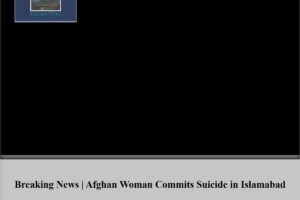Amidst escalating tensions and shifting geopolitical landscapes, recent documents obtained by Kauser News reveal that the United States Army, through the Department of Defense (DOD), has secured contracts pertaining to Afghanistan in 2024.

Additionally, the State Department has allocated grants for non-governmental organizations (NGOs) operating in Afghanistan. These developments suggest a significant reengagement with the war-torn nation, raising questions and concerns about the exclusion of Afghan local companies and NGOs from these lucrative opportunities.
The revelation comes at a critical juncture, marking a potential reversal of the US military’s withdrawal from Afghanistan in 2021. Following the controversial pullout, which culminated in the fall of Kabul to Taliban forces, the situation in Afghanistan has remained precarious, characterized by political instability, humanitarian crises, and security challenges. The return of US military involvement signals a nuanced approach to addressing these complex issues.

The contracts secured by the US Army DOD indicate a strategic interest in various sectors essential for stabilizing Afghanistan’s fragile infrastructure and fostering socio-economic development. These contracts likely encompass logistical support, infrastructure reconstruction, security operations, and training initiatives aimed at bolstering Afghan security forces. While specific details remain undisclosed, the scale and scope of these contracts hint at a comprehensive effort to rebuild and fortify Afghanistan’s capabilities.

Simultaneously, the State Department’s allocation of grants for NGOs underscores a commitment to supporting civil society and humanitarian efforts in Afghanistan. These grants are vital for funding essential services such as healthcare, education, women’s empowerment, and refugee assistance. NGOs play a pivotal role in delivering aid and implementing grassroots initiatives, making them indispensable partners in Afghanistan’s reconstruction and reconciliation process.

The exclusion of Afghan local companies and NGOs from accessing these contracts and grants raises ethical and practical concerns. Despite being the most knowledgeable about the country’s needs and intricacies, Afghan entities find themselves marginalized in favor of international counterparts. This exclusion not only undermines efforts to promote local ownership and capacity-building but also perpetuates dependency on external actors.
Moreover, sidelining Afghan stakeholders risks exacerbating existing tensions and fueling resentment towards foreign intervention. Inclusive and participatory approaches are essential for fostering trust, legitimacy, and sustainability in post-conflict settings like Afghanistan. By prioritizing local partnerships and empowering Afghan voices, the US can enhance the effectiveness and legitimacy of its interventions while fostering genuine long-term stability.
Kauser News’ findings underscore the need for transparency, accountability, and inclusivity in US engagements with Afghanistan. While the documents reveal a renewed commitment to addressing Afghanistan’s challenges, the manner in which these efforts are executed will ultimately determine their success and impact. The US must prioritize collaboration with Afghan stakeholders, leverage local expertise, and ensure that interventions align with the aspirations and priorities of the Afghan people.
As the US Army prepares to potentially reenter Afghanistan, it must heed the lessons of the past and approach its involvement with humility, empathy, and a genuine commitment to supporting Afghanistan’s journey towards peace, stability, and prosperity. Only through genuine partnerships and inclusive approaches can the US contribute meaningfully to Afghanistan’s long-term resilience and development.





